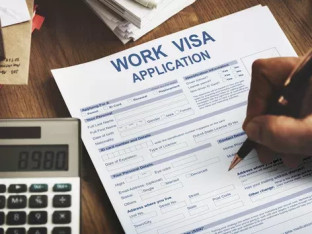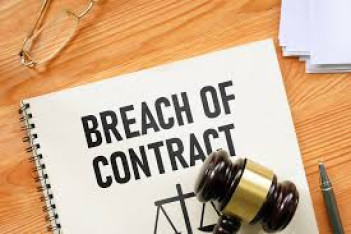Understanding Security Deposits: A Comprehensive Guide for Tenants and Landlords in 2025
Security deposits are a fundamental aspect of rental agreements, serving as financial protection for landlords against potential damages or breaches of the lease. For tenants, understanding the rules and legal guidelines concerning security deposits is crucial to ensure their rights are upheld after moving out. This article aims to provide an in-depth exploration of security deposits, focusing on the legal deadline for returns, proper deductions, and how to dispute unfair charges effectively in 2025.
What Is a Security Deposit?
A security deposit is an amount of money a tenant provides to a landlord at the beginning of a lease agreement. It functions as a security measure, ensuring that the tenant will fulfill all the obligations of the lease, such as paying rent on time and leaving the property in good condition. The deposit is not meant to cover normal wear and tear but rather damages beyond ordinary use or unpaid rent.
Legal Deadlines for Security Deposit Return
One of the most critical legal protections for tenants is the requirement that landlords must return security deposits within a certain timeframe after the tenant moves out. In 2025, the legal deadline typically varies by jurisdiction but generally ranges from 14 to 30 days after the lease termination date.
Landlords are obligated to either return the full amount of the deposit or provide an itemized statement of any deductions along with the remaining balance. Failure to comply with these deadlines can result in penalties, including the tenant being entitled to recover the full deposit along with additional damages in some cases.
Allowable Deductions from Security Deposits
Not all deductions from a security deposit are legitimate. Landlords may only deduct costs for:
- Repairing damages caused by the tenant beyond normal wear and tear;
- Unpaid rent or fees;
- Cleaning expenses if the property is left excessively dirty;
- Replacing lost or damaged items beyond reasonable use.
Tenants should expect an itemized statement detailing these deductions, accompanied by receipts or estimates when possible.
The Importance of Documentation
To protect your security deposit, it is vital to document the condition of the property both before move-in and after move-out. This includes taking comprehensive photographs or videos showing the state of the premises.
Additionally, keeping all communication records with your landlord—such as emails, texts, or written notices—can serve as crucial evidence in case disputes arise. Proper documentation strengthens your position to challenge any unfair deductions.
Disputing Unfair Deductions
If you believe deductions are unfair or unwarranted, you have the right to dispute them. The small claims court is the usual venue for resolving such disputes efficiently and affordably.
When preparing your case, focus on presenting proof rather than emotion. Clear photographic evidence, documented communications, and receipts or estimates for repairs will be the keys to a successful claim.
Steps to Take When Disputing a Security Deposit Deduction
- Review your lease agreement and local laws regarding security deposits;
- Collect and organize all evidence, including photos, communication logs, and receipts;
- Communicate formally with your landlord to request a detailed explanation and negotiate, if possible;
- File a claim in small claims court if an amicable resolution isn’t achievable;
- Prepare your case with factual evidence and remain calm and professional during proceedings.
Preventative Measures for Tenants
Prevention is always better than cure. Tenants can take several steps before and during their tenancy to minimize the risk of losing their security deposit unfairly:
- Conduct a thorough move-in inspection and document any existing damages;
- Maintain the property responsibly and report issues promptly;
- Communicate openly with your landlord and request move-out instructions;
- Clean the property diligently before vacating;
- Schedule a joint move-out inspection with your landlord, if possible.
Landlord Responsibilities Regarding Security Deposits
Landlords carry specific obligations under the law to handle security deposits properly. Some of the key responsibilities include:
- Holding the deposit in a separate, interest-bearing account if required by law;
- Returning the deposit or providing an itemized deduction list within the legal deadline;
- Providing clear communication and documentation to the tenant regarding any deductions;
- Not retaliating against tenants who dispute deductions or exercise their legal rights.
When to Seek Professional Help
Dealing with security deposits can become complicated if disputes escalate. If you find yourself unsure about your rights or responsibilities, consider seeking assistance from qualified professionals. Proper legal advice or consultation can guide you through the process and increase your chances of a favorable outcome.
For personalized support, you can contact us through the communication methods provided in our bio or send a private message. Our experienced team at Legal Marketplace CONSULTANT is here to help tenants and landlords navigate security deposit issues with confidence and clarity.
Legal Marketplace CONSULTANT — your trusted partner in legal services, specializing in comprehensive support for both tenants and landlords regarding rental agreements and security deposit disputes.
Security deposits serve as an essential safeguard in rental agreements, but their correct handling requires awareness of legal deadlines, allowable deductions, and documentation practices. Both tenants and landlords benefit from understanding their rights and responsibilities to prevent and resolve disputes smoothly.
By maintaining thorough records and approaching disputes with evidence and professionalism, tenants can protect their deposits, and landlords can ensure compliance with the law. For complex issues or when fair resolution seems out of reach, seeking professional advice is always recommended to uphold the principles of fairness and legality in rental transactions in 2025 and beyond.































